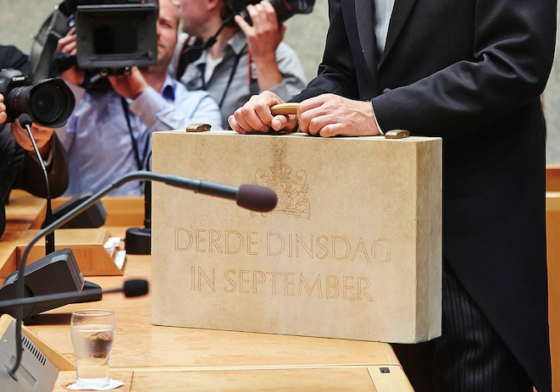Spending power to dominate Tuesday’s budget as leaks continue


Spending power is set to dominate Tuesday’s budget, with the government poised to spend €16 billion averting the worst of the impact of soaring inflation, leaks to the Dutch media show.
The average family is set to have 3.9% more to spend next year, although this will not offset the average drop of 6.8% this year, according to the government’s macro-economic forecasting agency CPB.
In total, the government will spend €16 billion on boosting spending power in various ways, including a slight income tax cut, a cut in energy tax and extra benefits for the poorest households. The minimum wage will also rise 10%.
Much of the extra spending will be funded by an increase in the tax on assets and profit taxes on industry, the Financieele Dagblad reported.
Other measures which have been leaked include an extra €3.9 billion to support Ukraine, involving both military and humanitarian measures.
A further €1 billion will be spent on providing crisis accommodation for refugees and regular housing for those who have been given residency status.
As indicated earlier, the defence ministry budget will rise to 2% of GDP and €5.2 billion has been allocated to pay for measures to reduce the spread of coronavirus next year.
Healthcare
More details will also be published about the government’s plans to ensure healthcare remains affordable as the population ages.
Last week it emerged that doctors and community nurses were refusing to sign a cabinet-brokered agreement, but all, apart from family doctors, have now done so.
They want concrete commitments from health insurance companies about paying for longer consultations.
The aim of the IZA, which has been leaked to the media in various draft versions, is to put more focus on prevention and efficiency, while keeping healthcare affordable.
It is likely to include measures to concentrate complex care at fewer locations and make it more difficult for people to use care services which do not have a contract with a health insurance company.
Care which is labour intensive, expensive and which has a major impact on the environment, may also be subject to extra checks, Dutch media have reported.
Thank you for donating to DutchNews.nl.
We could not provide the Dutch News service, and keep it free of charge, without the generous support of our readers. Your donations allow us to report on issues you tell us matter, and provide you with a summary of the most important Dutch news each day.
Make a donation